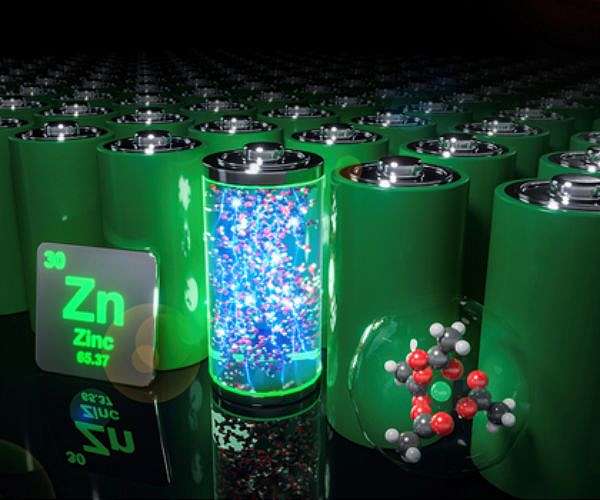Dongguk University researchers develop scalable zinc-ion battery technology for industrial use
A Dongguk University research team, led by Association Lecter Geon-Hyoung An of the Department of Energy and Materials Engineering, has introduced a promising alternative for traditional lithium ion batteries for industrial energy storage. Their work, recently published in the Journal Advanced Energy Materials, is investigating the use of stainless steel foil (G@SSF-400) as the current collector for zinc ion batteries.
In contrast to conventional lithium ion systems, which form significant fire risks and high costs, zinc ion batteries based on water-based electrolytes offer a safer, more cost-effective and environmentally friendly option. However, existing zinc-ion battery designs are often confronted with scalability problems due to the limited mechanical strength and conductivity of commonly used current collectors such as graphite film.
Tackling the Dongguk University team overcomes these challenges using graphene-coat stainless steel, which can be produced by a simple coating and heat treatment process to remove surface oxides. According to Prof. dr. An, “is the core innovation of the current study the use of graphene-coate stainless steel foil, or g@ssf-400, as a current collector for zinc ion batteries. In contrast to conventional collectors, our material can be produced by a simple graph one and heating for election-oxide elaboration.”
The new current collector exhibited exceptional performance, including high specific capacities of more than 1 mAh CM-2 and the possibility to maintain 88.7% of its capacity, even after 1500 load discharge cycles. These attributes are crucial for large -scale solutions for long -term energy storage. In addition, the compatibility of technology with roll-to-roll production processes supports the production of an industrial scale, making it a practical choice to integrate renewable energy sources into the grid.
“This technology is very suitable for energy storage systems on roster scale, especially in the context of integration of renewable energy. By making it possible to use water-based zinc batteries, our approach offers a non-flaming, cost-effective and environmentally friendly alternative to traditional lithium ion systems,” Prof. Prof. An.
With these progress, the G@SSF-400 positions current collective design positions zinc ion batteries such as a viable, scalable and sustainable energy storage solution, which may reduce dependence on dangerous and expensive lithium-based technologies. This breakthrough could significantly influence global energy storage, promoting broader access to renewable power and supporting a more resilient and sustainable energy infrastructure.

